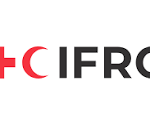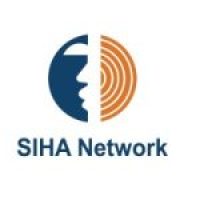Duties and Responsibilities
To provide support to national malaria programmes (NMPsP to conduct context and operational needs analysis for the digitalization of the ITN campaign to define aspects of the campaign that will be digitized (macroplanning, microplanning including geo-enabled microplanning, household registration, distribution, logistics and supply chain, supervision and monitoring, social behavior change, etc.).
To support NMPs to assess the country digitalization ecosystem and key indicators (internet penetration rate, use of social media, nationwide network coverage etc.), identifying opportunities, weaknesses, and gaps for campaign digitalization.
To support NMPs and partners to define the best platform option(s) based on an assessment of the country context.
To lead discussions on defining system requirements, customizing platforms to meet country-specific needs, and overseeing deployment, monitoring, and implementation
To support NMPs to develop digitalization plan of action based on the outcomes from the context analysis and the operational needs and ensure its aligned and consistent with the overall ITN strategy and other campaign plans (logistics, M&E, operations).
To lead the definition of digitalization campaign workflow and process to collect data from the households using smartphone devices (procured equipment or Bring Your Own Device approach) and apps to the main platform.
To support NMPs to develop a comprehensive budget based on clear quantifications of personnel (national or international hired) and trainings; hardware and software (smartphones specs and numbers, main digitalization platform and related applications etc.) needed for the digitalization of the campaign.
To support NMPs to develop digitalization timeline and roles and responsibilities for each of the stakeholders and service providers.
To support NMPs to develop risk assessment and mitigation measures for the campaign digitalization.
To support NMPs to develop job descriptions for digitalization staff, terms of references for the sub-digitalization committee, specifications for smartphones and software and related digitalization standard operating procedures (SOPs).
To support NMPs and partners with the development of training materials (agendas, practical exercises, short videos and simulations, etc.), SOPs and other tools and supports required for successful implementation of the digitalized campaign processes.
To support NMPs and partners to define the supply chain digitalization, elements that will be fully digitalized vs hybrid and develop associated system and training materials/SOPs that will be used for ITN accountability, including the scanning of barcodes on ITN bales and/or individual nets to ensure that lessons learned.
To support NMPs and partners in defining a technical support management plan (helpdesk) for incidents and technical assistance during implementation.
To support the definition of key indicators needed on the campaign dashboard and ensure that the data collected on the digital platform is available on an online dashboard, updated in real-time, and easily accessible by monitors and supervisors.
To support the development of SOPs for data cleaning and validation, as well as the development of standard templates for analysis and feedback based on the digitalized data during implementation.
To support NMPs and partners in developing a detailed plan for piloting the campaign digitalization tool and campaign processes before full-scale implementation.
To support NMPs to define primary metrics for the assessing the campaign digitization pilot and adjustments needed before scaling up.
Job Duties and Responsibilities (continued)
To support the implementation of the pilot phase HHR, ITN distribution, supply chain digitalization, supervision, monitoring and payments; identify critical areas for improvement (platform, operations) and ensure that recommendations for action in advance of the full campaign implementation are identified, including timeline for responding and responsible person or entity.
To provide NMPs with tools for online collection of information from various actors to inform future development of the digitalization platform.
To support NMPs with organization of lessons learned workshops to gather feedback for improving the digitalization process and the platform prior to full-scale implementation.
To support NMPs to organize post-campaign review meetings to identify successes, challenges and lessons learned from countries that implemented their campaigns using digital tools and define concrete recommendations and steps for future improvements, including new modules for optimizing campaign processes.
To monitor the progress of digitalization efforts, evaluating their impact, and suggesting improvements based on data analysis and feedback from stakeholders.
To compile the lessons learned from various countries supported for different campaign processes, with a focus on in-country supply chain digitalization and use these to guide processes in future countries to support a continuous improvement process.
To support an iterative learning process for digitalization, particularly for supply chain end-to-end digitalization, through dissemination of operational guidance and tools.
Alignment to the IFRC’s Strategy 2030
The Alliance for Malaria Prevention’s mandate aligns to the Federation’s Strategy 2030 as it supports the achievement of strategic aims:
- Save lives, protect livelihoods and strengthen recovery from disasters and crises
- Enable healthy and safe living.
Project objectives and outcomes:
Objective #1: Optimizing malaria prevention with ITNs through mass distribution campaigns and continuous distribution channels.
Desired outcomes: To address inefficiencies in planning and implementation of mass ITN distribution campaigns through timely deployment of digital tools for data collection and to better understand best practices for the digital transition for future campaigns.
Support to be provided to the consultant
The consultant will be supported by the Lead – Malaria Programmes, Officer, AMP Country Support and the Senior Officer, OPITACA.
Time allocation, for budget purposes
The consultant will be expected to work for a maximum of 60 days.
The consultancy timeframe will be from 3 March 2025 to 31 December 2025.
Education
Required
Advanced degree (master’s level) in public health, ICT, data science, health information systems, international development or related field.
Experience
Required
- Minimum of five years of increasingly responsible professional experience, especially in the fields of digital health, health information systems, programme management.
- Experience working at the national or international level for convening stakeholders and governance mechanisms, translating policies into action, adapting and implementing digital systems for health system strengthening and addressing programme needs.
- Experience with implementation and country-level support on digital health, data and health information systems, including the appropriate and ethical use of technology for development, as well as with emerging or frontier technologies.
- Experience in budgeting and cost analysis of digital systems.
Preferred
Field experience in direct implementations of digital health systems a strong asset.
Knowledge, Skills and Languages
Required
- English and/or French is required.
- Familiarity with health campaign digitalization in malaria, immunization or related field.
- Work independently and coordinate collation of information from multiple stakeholders.
- Expertise in digital campaign strategy and execution.
Preferred
- Lusophone is a strong asset.










